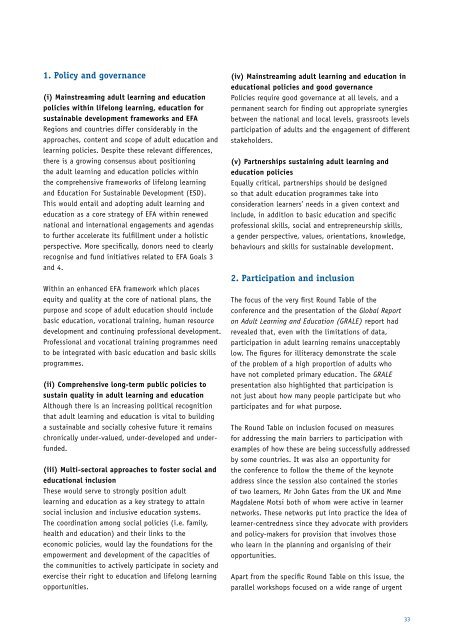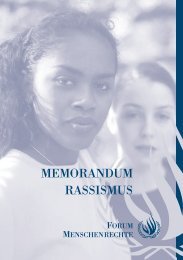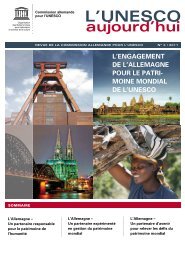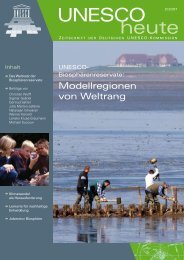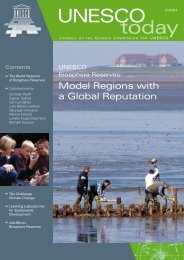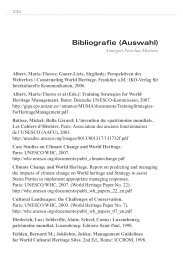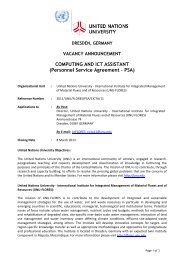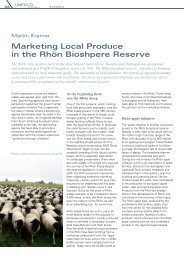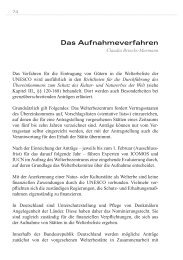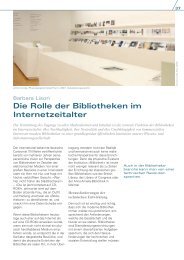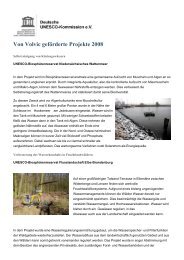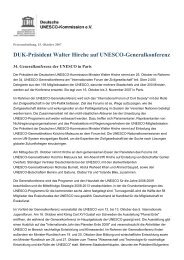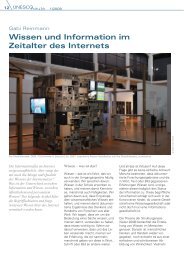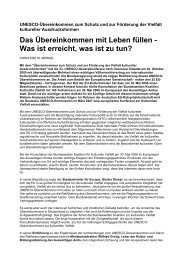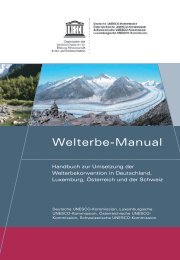CONFINTEA VI, final report - Unesco
CONFINTEA VI, final report - Unesco
CONFINTEA VI, final report - Unesco
You also want an ePaper? Increase the reach of your titles
YUMPU automatically turns print PDFs into web optimized ePapers that Google loves.
1. Policy and governance<br />
(i) Mainstreaming adult learning and education<br />
policies within lifelong learning, education for<br />
sustainable development frameworks and EFA<br />
Regions and countries differ considerably in the<br />
approaches, content and scope of adult education and<br />
learning policies. Despite these relevant differences,<br />
there is a growing consensus about positioning<br />
the adult learning and education policies within<br />
the comprehensive frameworks of lifelong learning<br />
and Education For Sustainable Development (ESD).<br />
This would entail and adopting adult learning and<br />
education as a core strategy of EFA within renewed<br />
national and international engagements and agendas<br />
to further accelerate its fulfillment under a holistic<br />
perspective. More specifically, donors need to clearly<br />
recognise and fund initiatives related to EFA Goals 3<br />
and 4.<br />
Within an enhanced EFA framework which places<br />
equity and quality at the core of national plans, the<br />
purpose and scope of adult education should include<br />
basic education, vocational training, human resource<br />
development and continuing professional development.<br />
Professional and vocational training programmes need<br />
to be integrated with basic education and basic skills<br />
programmes.<br />
(ii) Comprehensive long-term public policies to<br />
sustain quality in adult learning and education<br />
Although there is an increasing political recognition<br />
that adult learning and education is vital to building<br />
a sustainable and socially cohesive future it remains<br />
chronically under-valued, under-developed and underfunded.<br />
(iii) Multi-sectoral approaches to foster social and<br />
educational inclusion<br />
These would serve to strongly position adult<br />
learning and education as a key strategy to attain<br />
social inclusion and inclusive education systems.<br />
The coordination among social policies (i.e. family,<br />
health and education) and their links to the<br />
economic policies, would lay the foundations for the<br />
empowerment and development of the capacities of<br />
the communities to actively participate in society and<br />
exercise their right to education and lifelong learning<br />
opportunities.<br />
(iv) Mainstreaming adult learning and education in<br />
educational policies and good governance<br />
Policies require good governance at all levels, and a<br />
permanent search for finding out appropriate synergies<br />
between the national and local levels, grassroots levels<br />
participation of adults and the engagement of different<br />
stakeholders.<br />
(v) Partnerships sustaining adult learning and<br />
education policies<br />
Equally critical, partnerships should be designed<br />
so that adult education programmes take into<br />
consideration learners’ needs in a given context and<br />
include, in addition to basic education and specific<br />
professional skills, social and entrepreneurship skills,<br />
a gender perspective, values, orientations, knowledge,<br />
behaviours and skills for sustainable development.<br />
2. Participation and inclusion<br />
The focus of the very first Round Table of the<br />
conference and the presentation of the Global Report<br />
on Adult Learning and Education (GRALE) <strong>report</strong> had<br />
revealed that, even with the limitations of data,<br />
participation in adult learning remains unacceptably<br />
low. The figures for illiteracy demonstrate the scale<br />
of the problem of a high proportion of adults who<br />
have not completed primary education. The GRALE<br />
presentation also highlighted that participation is<br />
not just about how many people participate but who<br />
participates and for what purpose.<br />
The Round Table on inclusion focused on measures<br />
for addressing the main barriers to participation with<br />
examples of how these are being successfully addressed<br />
by some countries. It was also an opportunity for<br />
the conference to follow the theme of the keynote<br />
address since the session also contained the stories<br />
of two learners, Mr John Gates from the UK and Mme<br />
Magdalene Motsi both of whom were active in learner<br />
networks. These networks put into practice the idea of<br />
learner-centredness since they advocate with providers<br />
and policy-makers for provision that involves those<br />
who learn in the planning and organising of their<br />
opportunities.<br />
Apart from the specific Round Table on this issue, the<br />
parallel workshops focused on a wide range of urgent<br />
33


